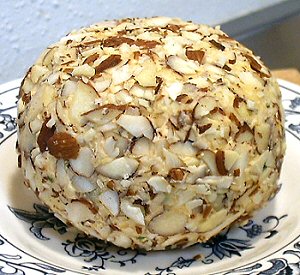What Happens If You Eat Too Much Salt?
1. High Blood Pressure (Hypertension): Excess salt intake is one of the primary risk factors for developing high blood pressure. Sodium retains water in the body, increasing the volume of blood in circulation. This puts extra pressure on the blood vessel walls, leading to hypertension.
2. Heart Disease: High blood pressure, a result of excessive salt consumption, is a major risk factor for heart disease. The strain on the heart caused by elevated blood pressure can damage the heart muscle and arteries, increasing the risk of heart attacks, strokes, and other cardiovascular complications.
3. Stroke: High salt intake contributes to the development of plaque in the arteries (atherosclerosis), narrowing the blood vessels and restricting blood flow to the brain. This plaque buildup can lead to ischemic strokes when a blood clot blocks an artery in the brain, or hemorrhagic strokes if a weakened blood vessel ruptures.
4. Kidney Damage: The kidneys play a critical role in regulating sodium levels in the body. Excessive salt intake can impair kidney function, causing damage to the delicate structures responsible for filtering waste products and maintaining the body's water and electrolyte balance. This can lead to chronic kidney disease (CKD), which may progress to kidney failure.
5. Stomach Cancer: Studies have suggested a link between high salt intake and an increased risk of stomach cancer. Salt is thought to damage the lining of the stomach, creating an environment conducive to the formation of cancer cells.
6. Osteoporosis: High salt consumption may be associated with increased calcium excretion in the urine, leading to reduced calcium levels in the body. Calcium is essential for bone health, so its depletion can contribute to weaker bones and an increased risk of osteoporosis.
7. Water Retention (Edema): Consuming too much salt can cause the body to retain excess water, leading to swelling in the hands, feet, ankles, and face. This swelling is known as edema.
8. Headaches and Migraines: Some individuals may experience headaches or migraines as a result of eating excessive salt. Salt can trigger headaches by causing fluid retention and changes in blood pressure.
9. Thirst and Dehydration: Excessive salt intake can make you feel thirsty, prompting you to drink more fluids. However, if you have impaired kidney function, drinking too much fluid can further elevate blood pressure.
The recommended daily sodium intake for adults is 2,300 milligrams, although most people consume significantly more. Reducing salt intake, especially if you have pre-existing health conditions like high blood pressure, kidney disease, or heart problems, is important for maintaining good health.
-
LOW CARB PUPPY CHOW
LOW CARB PUPPY CHOW4 cups pork rinds, 1 1/2 ounces1/4 cup low carb cho
-
CRISPY CHEESE CRACKERS
CRISPY CHEESE CRACKERSDeluxe American cheese slices (not cheese food o
-
NACHOS
NACHOSAbout 10 pickled jalape駉 slices1/2 ounce cheddar cheese, shredde
-
ALMOST PAYDAY CANDY BARS
ALMOST PAYDAY CANDY BARS1 batch Chewy Peanut Butter Candy 3 ounces sal
-
Black Bean and Corn Dip
-
PORTABELLO POTATO SKINS
PORTABELLO POTATO SKINS1 batch Portabello Mushroom Fries4 tablespoons



